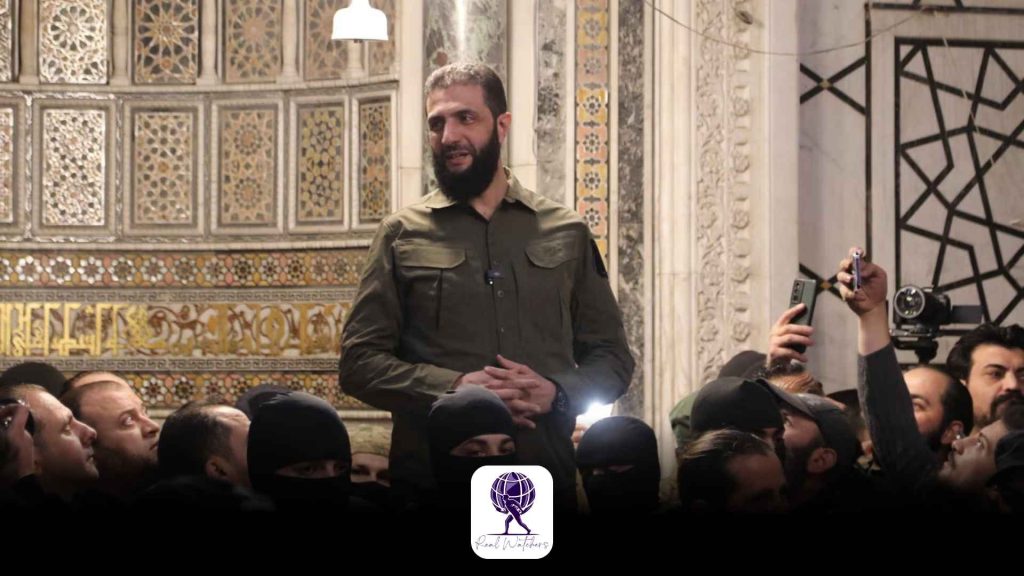Syrian rebel forces have announced their intention to shut down the infamous prisons operated by former president Bashar al-Assad and pursue individuals implicated in the killing or torture of detainees.
In a statement reported by the Reuters news agency, rebel leader Ahmed al-Sharaa, commonly referred to as Abu Mohammed al-Jolani, announced his intention to dissolve the former regime’s security forces.
Footage has emerged depicting the release of thousands of inmates from Saydnaya prison, a facility described by human rights organizations as a “human abattoir,” following the downfall of the Assad government on Sunday.
According to the UK-based monitoring group Syrian Observatory for Human Rights, nearly 60,000 individuals have suffered torture and death in prisons operated by Assad.
Jolani’s Islamist militant organisation, Hayat Tahrir al-Sham (HTS), spearheaded a rapid offensive alongside other Syrian rebel factions, resulting in the collapse of the Assad dynasty’s 54-year reign.
In the early hours of Sunday, Assad sought refuge in Russia, where he and his family have been granted asylum following the capture of the capital, Damascus, by rebel forces.
In a distinct announcement, Jolani asserted that granting pardons to individuals involved in the torture or murder of prisoners was unequivocally not an option.
“We will pursue them in Syria, and we urge countries to extradite those who have fled to ensure justice is served,” he stated.
In the wake of President Bashar al-Assad’s fall, a wave of Syrians has flocked to the regime’s notorious prisons, urgently seeking information about their missing loved ones. A 2022 report from the Turkey-based Association of Detainees and The Missing in Saydnaya Prison (ADMSP) described Saydnaya as having “effectively become a death camp” following the onset of the civil war in 2011.
Jolani announced plans to dismantle the security forces established under the former Assad regime. The speed at which rebel fighters could reconstitute their forces remains uncertain, particularly in light of ongoing concerns regarding Israeli strikes targeting the nation’s military infrastructure.
In a statement obtained by Reuters, Jolani indicated that his group is collaborating with international organisations to identify potential chemical weapons sites.
In response to the Reuters report, Deputy Pentagon Press Secretary Sabrina Singh stated that the US “welcomed” the remarks made by Jolani but emphasised the necessity for those words to be backed by concrete actions.
“She emphasised the importance of preventing these chemical weapons from falling into the wrong hands.”
Israel has conducted hundreds of strikes throughout Syria, resulting in the seizure of various military assets.
Local media reports indicate that one of the attacks was directed at a research centre believed to have connections to chemical weapon production.
Israel has stated that its actions are aimed at preventing weapons from reaching “the hands of extremists”.
The Organisation for the Prohibition of Chemical Weapons (OPCW), the United Nations’ chemical oversight body, defines a chemical weapon as a substance employed to inflict death or injury due to its toxic characteristics deliberately.
Their utilisation is banned by international humanitarian law.
From 2013 to 2018, Human Rights Watch recorded a minimum of 85 chemical weapons attacks in Syria, attributing the majority of these incidents to the actions of the ousted government.
The government of Assad has categorically denied any allegations of using chemical weapons.
Syria officially endorsed the OPCW’s Chemical Weapons Certificate in 2013 following a devastating chemical weapons assault on the outskirts of Damascus that resulted in the deaths of over 1,400 individuals.
The exact quantity of chemical weapons in Syria remains uncertain, yet there are suspicions that Assad has maintained stockpiles, suggesting that his previous declarations may have been incomplete.
Survivors of chemical attacks in Syria have recently shared their harrowing experiences with the BBC, detailing the profound effects these assaults have had on their lives.
European foreign ministers are convening in Berlin on Thursday for meaningful discussions regarding Syria and Ukraine.
According to a statement from the White House, leaders of the G7 nations are set to convene virtually to address the recent developments in Syria, scheduled for the following day.








